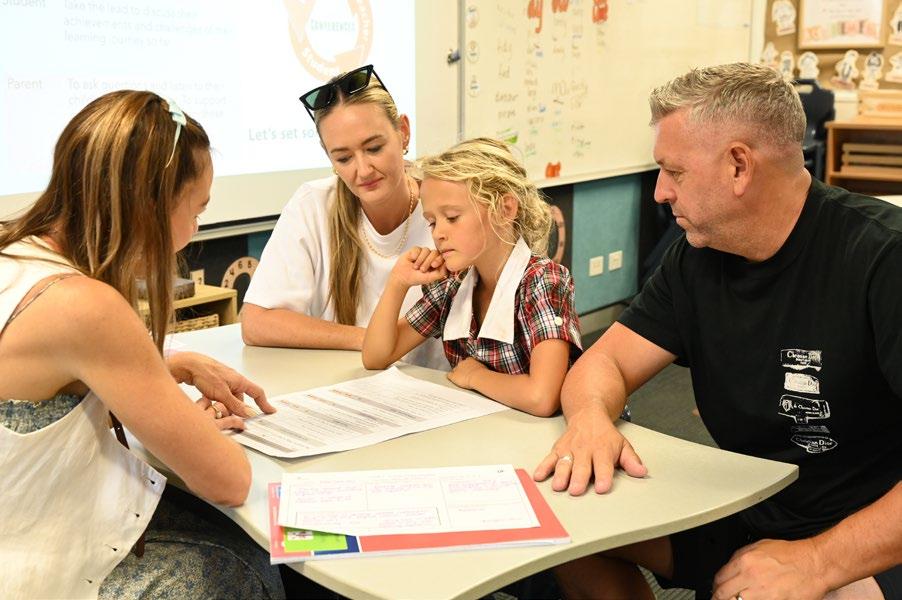

WELCOME. St Andrews Lutheran College is an independent co-educational College for students from Preparatory to Year 12 which seeks to provide quality Christian education in a caring environment.




WELCOME. St Andrews Lutheran College is an independent co-educational College for students from Preparatory to Year 12 which seeks to provide quality Christian education in a caring environment.



715

+ Less than 5% of students speak a language other than English
+ 1% of students identify as indigenous
Creative Arts
Curricular
+ Dance, Drama, Visual Art, Music, Music Extension, Film and TV.
Co-Curricular


+ Mini Musos, Band Programs (JS Concert Band, Senior Concert Band, String Ensemble, Percussion Ensembles, Marimba Trio, Stringendo), The Saints, Choirs (Semitones, Golden Clefs, Senior Choir, Vocal Ensemble), Dance Troupes (Jazzettes, Express, Dansation, Combined Intensity), Drama Festivals, Eisteddfods, Musicals
Performing Arts Tuition
+ Voice, Piano, Speech and Drama, Strings, Brass, Woodwind, Percussion, Guitar, Dance, Makin’ Mini Music, Mini Movers
Sport
+ Gym and Personal Training, Weightlifting, Athletics, Swimming, Cross Country, Mountain Biking, Social Indoor Sports, Table Tennis, Tennis, Surfing, Basketball, Volleyball, Soft Lacrosse, Badminton, Squash, Running Club, Kokoda Challenge, Futsal Excellence, Netball Excellence, Netball Development, Touch Excellence, Club Touch, Rugby 7s, Esports, AFL, Soccer.

Academic

+ P-6 International Baccalaureate (PYP)
+ PYP Exhibition
+ Middle Years Elective Offering
+ Senior Years Careers Destinations Program
+ Year 11 and 12 accredited Christian Studies Course (Religion and Ethics)
+ IC24 (Entrepreneurial Program)
+ Hydrogen Challenge
+ School Based Traineeships and Apprenticeships
+ Debating
+ Chess
+ Japanese and German Languages


At St Andrews, we believe that learning how to learn is essential not just for success at school, but for life beyond the classroom. Our programs are designed to equip students with a core set of transferable skills, including:
+ Thinking skills – developing critical, creative, and reflective thinking
+ Communication skills – expressing ideas clearly and listening actively
+ Research skills – investigating, analysing, and evaluating information
+ Self-management skills – fostering organisation, resilience, and independence
+ Social skills – building empathy, collaboration, and respectful relationships
These foundational skills empower students to become confident, capable, and adaptable learners in an ever-changing world.
+ Anti-bullying strategies are documented, implemented and regularly reviewed, with a wide range of strategies being applied.
+ Cultivating warm, trusting relationships between teachers and students, as well as strong, supportive connections between teachers and parents.
+ Restorative Practices is both a philosophy and a set of approaches grounded in the belief that repairing harm and restoring relationships is one of the most effective ways to resolve conflict, promote positive behaviour, and strengthen a safe, respectful, and caring community.
+ Providing holistic support for students
+ Support may include behavioural, additional learning needs, enrichment, social/emotional, and spiritual.
+ A team of specialist staff (including Counsellor, Chaplains, Inclusive Practices staff) strive to create a sense of belonging



To find out more about our Students or Pastoral Care program contact Bonita Jay, Director of Enrolments and Community Engagement.


DUE TO THE NUMBER OF INDIGENOUS STAFF, THIS DATA HAS BEEN SUPRESSED TO PROTECT THE PRIVACY OF THE INDIVIDUALS.
100% + TEACHER PARTICIPATION IN PROFESSIONAL LEARNING


133 WOMEN ON STAFF 46 MEN ON STAFF 77
TEACHING STAFF

$189,388 INVESTMENT IN PROFESSIONAL LEARNING (PL)

Online learning remains a popular delivery style for staff development. However, we also encourage staff to attend professional learning events off-campus to facilitate networking opportunities. Through networking, staff can learn from other schools and challenge our current practices.

+ Participation in regular worship and spiritual development workshops
+ Staff Professional Development including units from the ‘Pathways’ and ‘Connect’ programs
+ Encouragement for teaching staff to undertake further Theological Study

+ Teaching Staff participate in professional learning as identified in their annual Development and Affirmations meeting. Non-Teaching staff are also provided with Professional Development opportunities.
To find out more about our Staff contact

Our College recognise s that parents are essential partners in their children’s education. A nurturing and supportive home environment strengthens the work done in the classroom, enabling students to reach their full potential. When families, educators, and the wider community work collaboratively, students are more likely to flourish.
There are a variety of meaningful ways parents can support their child’s learning journey within a Lutheran school setting.

Parents are surveyed regularly. The survey provides the opportunity for parents to provide feedback across a broad range of areas. This information is used as part of the College’s commitment to continuous improvement

+ Classroom Help
+ Sporting Program/Coaching
+ Reading Program
+ Excursions
+ Literacy and Numeracy Support
+ Library Help
+ Building Assistance
+ Financial Gifts
+ Transport

+ Class Teacher’s letters
+ Journal Articles
+ Parent Information Booklets
+ Subject Information Booklets
+ Yearbook
+ Social Media Platforms
+ Parent Groups
+ Three Way Conferences
+ College App
+ Website






+ Class Events
+ Special Evenings
+ Three Way Conferences
+ Student Led Conferences
+ Information Evenings
+ Sporting Carnivals
+ Assemblies
+ Worship/Special Worship Services
+ Music and Sporting Events
+ Special Days
+ Class Support

+ Sources of School Income are available at www.myschool.edu.au












Students participated online or via a computer-assisted telephone interview
2024 results available in September 2025


At St Andrews Lutheran College, our Strategic Plan, publicly available on our College website, serves as the guiding document for decision-making, planning, and continuous improvement across all areas of the College. It outlines our long-term vision and clearly defines the priorities that shape our approach to student learning, wellbeing, staff development, community engagement, and sustainability.
The strategic plan is supported by annual operational plans developed by key teams, ensuring that strategies are translated into specific, measurable actions. These plans guide our day-to-day practices while remaining aligned with our broader mission and values. As part of our systematic approach to improvement, we regularly monitor progress through internal reviews, staff meetings, student achievement data, survey feedback, and project milestones.
Throughout the year, we engage in reflective practice and adjust actions where necessary to ensure continued progress toward strategic goals. This includes the revision of action plans in response to emerging needs or evidence from data sources such as student learning outcomes, parent and staff feedback, and community insights.
Please visit the College website to review our Strategic Plan.
+ All staff complete annual training on our child protection policies, procedures, and reporting obligations. This ensures everyone understands their responsibilities and in maintaining a safe environment for all children.
+ We have well defined policies and procedures that set clear expectations, including appropriate conduct with children, and the steps to follow if concerns or incidents arise.
+ Our Child Risk Management Strategy aims to ensure child safety and wellbeing. We regularly assess and manage risks within our school environment, including conducting risk assessments for activities and excursions and implementing appropriate measures to mitigate potential risks.
+ We follow strict recruitment protocols for all staff and volunteers, including mandatory Working with Children Checks (Blue Cards), to help ensure the safety of our students.
+ We are committed to empowering children to express their views, raise concerns, and participate in decisions affecting their safety and wellbeing.
+ We have clear processes in place for reporting and responding to child safety concerns. Designated staff members, including our trained Child Protection Officers, are equipped to handle disclosures sensitively and appropriately. We ensure prompt investigation of concerns and work closely with relevant authorities when required. Our Child Protection Officers are easily identifiable through posters displayed around the College.
+ We regularly review and update our child protection policies, procedures, and practices. This process is informed by feedback, evolving best practices, and changes in legislation to ensure ongoing effectiveness and compliance with child safety standards.
+ We are committed to keeping every child safe through open communication and strong support systems. Our staff are trained to recognise and respond to risks to student safety and are encouraged to raise any concerns promptly. We provide staff with ongoing training and maintain clear processes for reporting concerns. Our Child Safety Officers and Pastoral Care Team are available to support both students and families.